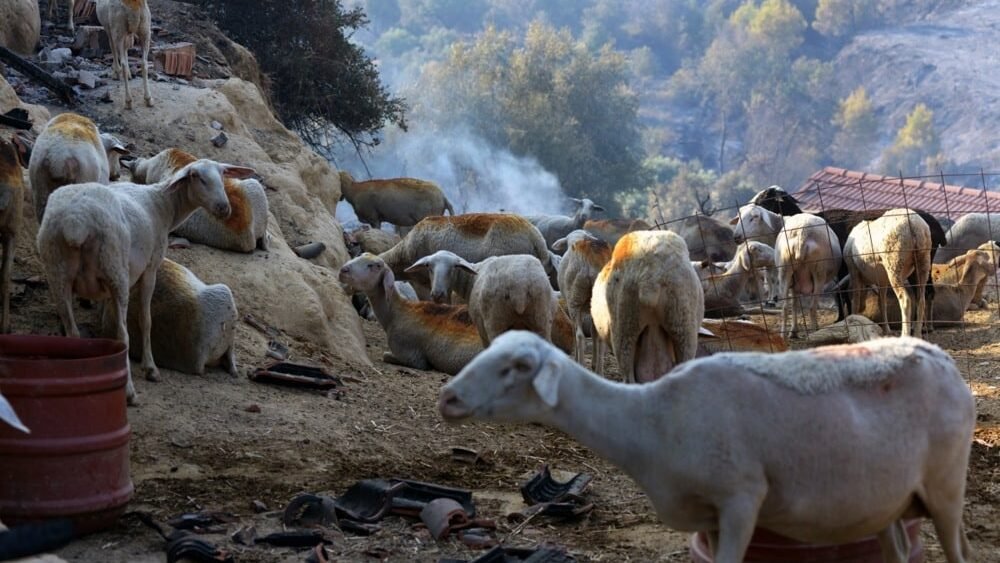The disease first appeared in neighboring Türkiye. Moskos said livestock farmers last November called for a vaccine program to be rolled out in and around the Thrace region, which borders Turkey, to contain the virus.
This call has fallen on deaf ears, with governments remaining reluctant due to long-term restrictions on exports and trade.
A spokesperson for the European Commission, the European Union’s executive body, told BIRN that the Commission “recommends vaccination” to combat the spread of the disease in Greece, citing the opinion of EU veterinary experts and the seriousness of the “epidemiological situation.”
But in Athens, the Ministry of Rural Development and Food said it had not yet received an answer from the EU to questions “regarding EU-approved vaccines” and said the country’s two veterinary faculties were “categorically” opposed to vaccination. The ministry said it was “ready to discuss any solution subject to EU approval”.
Meanwhile, the ministry announced new measures on October 13, from faster culling to the use of drones and biosecurity training for farmers, and stricter oversight of their implementation.
It also announced the establishment of a scientific committee to carry out an “evidence-based investigation” into the effectiveness of EU-approved vaccines, the immunity they provide, availability and economic impact compared to current epidemic control measures. The ministry told BIRN that if new measures are ineffective, “the next step will be a lockdown.” This includes a complete ban on the movement and transportation of all animals throughout the country.
“This means a freeze on trade,” Christos Kelas, deputy minister of rural development and food, told Greek public broadcaster in mid-September. “No milk or meat is being delivered and no slaughtering is taking place across the country.”
So far, five farmers have died of heart attacks due to culling their herds, Moskos said.
Some farmers, such as Papasiacas, are joining forces.
He is currently president of the national association of variola-affected livestock farmers, based in Larissa, south of Mount Olympus. Their goal is to secure fairer compensation and support, including from EU funds, to recover lost income and rebuild herds.
Earlier this month, the government approved an additional compensation of between 220 and 250 euros for each animal culled since April. The ministry told BIRN that it had allocated around 30 million euros to farmers by March this year, and that the same amount, in addition to insurance and tax exemptions for next year, had been approved for April onwards.
Farmers can also look forward to an unrelated EU subsidy of 153 million euros, announced this month after a long delay due to a scandal over billing fraud.
“If producers are not supported, they will be forced to withdraw from livestock farming, which will have a serious impact not only on the economy but also on regional and local development,” warned Charalambos Kasimis, professor emeritus at the Agricultural University of Athens.
“Animal husbandry is a difficult profession and not at all glamorous,” Kasimis told BIRN. “This is a very serious blow that threatens the very survival of livestock farming in our country.”

